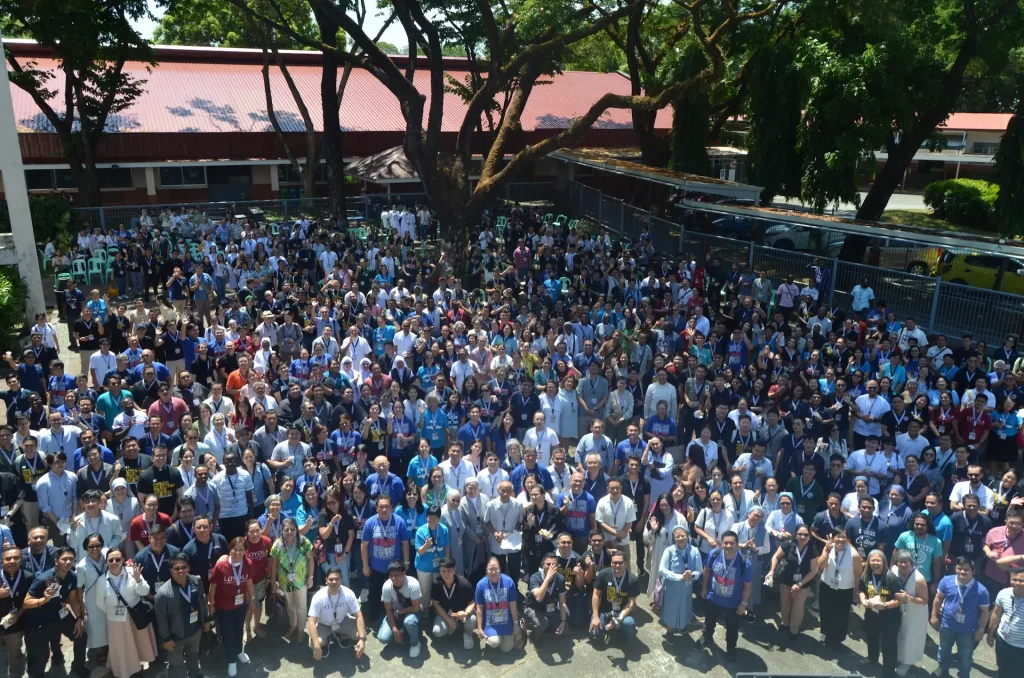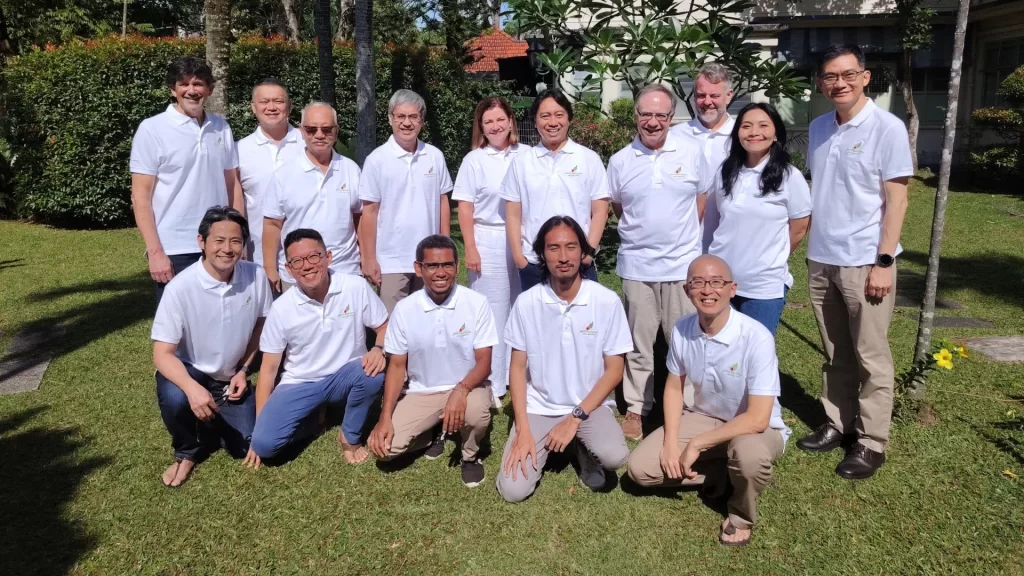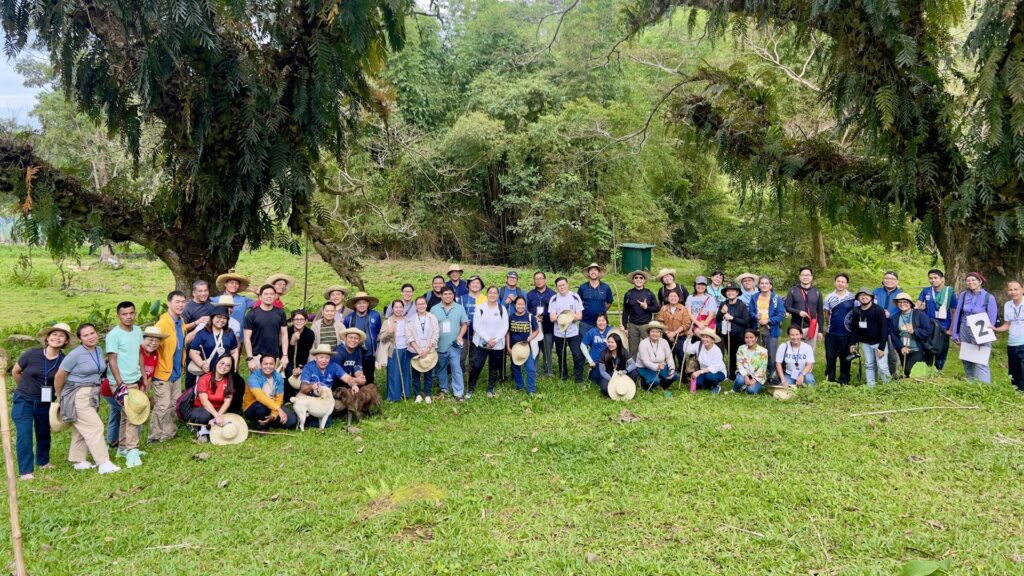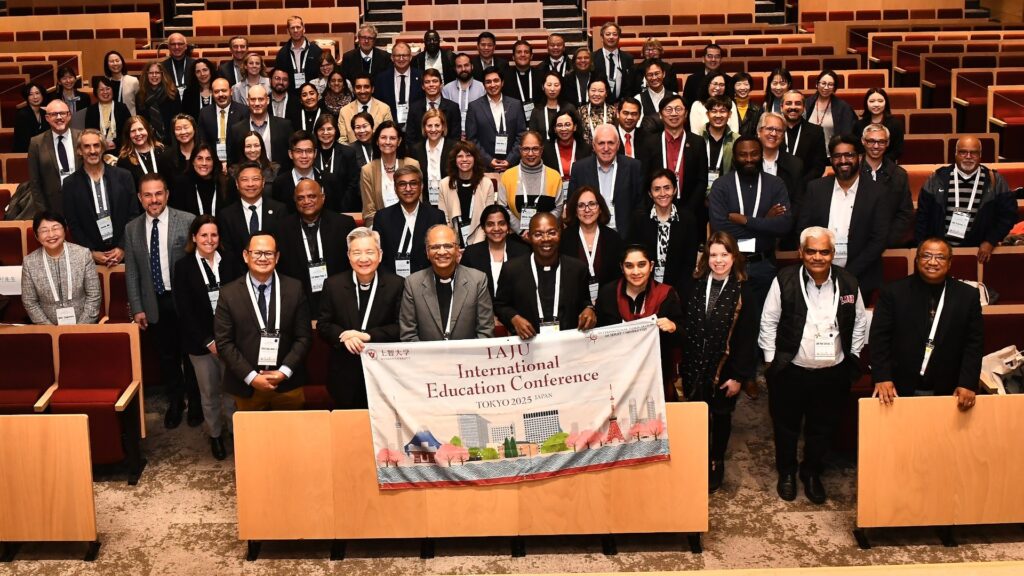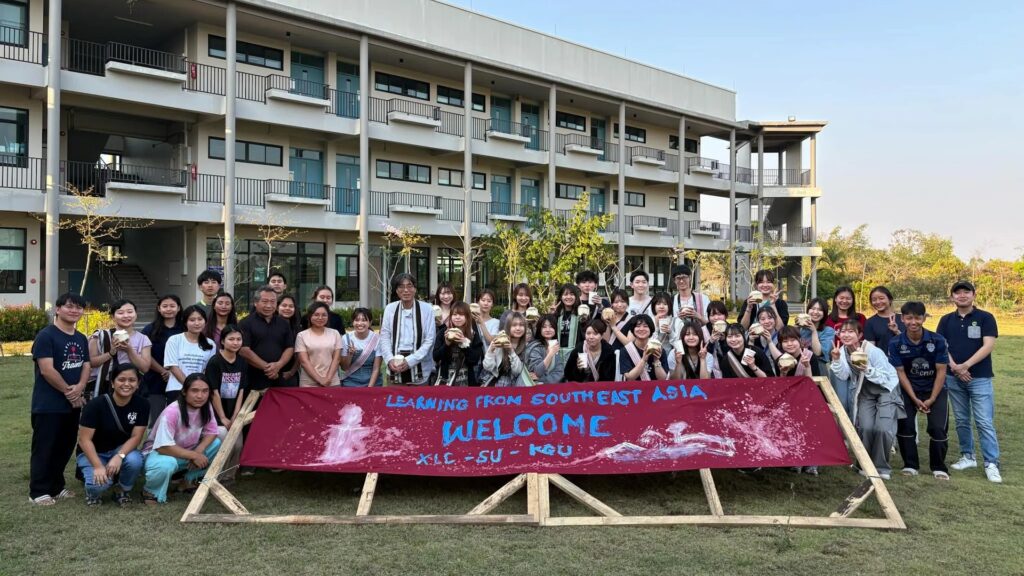After a year in borrowed space at St Mary’s Parish and grammar school, Yap Catholic High School (YCHS) opened its new campus with a celebratory mass on August 19. About 300 people made their way to Lamar for the official opening celebration.
Father John Hagileiram SJ, Regional Superior of the Jesuits in Micronesia, presided at a Mass of Thanksgiving. “This is a historic day,” he reminded the congregation, “on which we should all be proud of what we have achieved together with God’s help.”
In his homily, the school’s principal Fr Michael Corcoran SJ reminded the congregation that liturgy is always a “looking back and looking forward”, and so it was with the new school. He reminded the community that the school was their dream and that they looked forward with hope to the bright future it would provide their children.
Fr Corcoran thanked many people, in particular Don Evans who designed the buildings according to his “plantation architecture”, adding his creative touches, and who worked tirelessly to oversee the construction. He also singled out Jesus Tilmat, the master builder of the campus. “He can do everything and the quality of his workmanship and attention to detail are evident in these buildings behind me,” he said.
After Mass, the new classroom buildings were on display for all to see. Many visitors commented on the high quality of textbooks and classroom libraries. Everyone marvelled at the beauty of the buildings and the natural setting of the campus.
Many of the visitors took special pride in the campus, because they had worked on it during Saturday work sessions. Volunteers had cleared the grounds for construction, installed the stone paths connecting the classrooms and planted traditional Yapese plants throughout the campus.
The school opened its doors in September 2011 with 35, and currently has 47 students across freshman, sophomore and junior years and six full-time faculty members. Phase two of construction, which includes a chapel, offices, athletic facilities, a science lab and library, is set to begin this year.
For more information on Yap Catholic High School, visit www.ychs.net.


